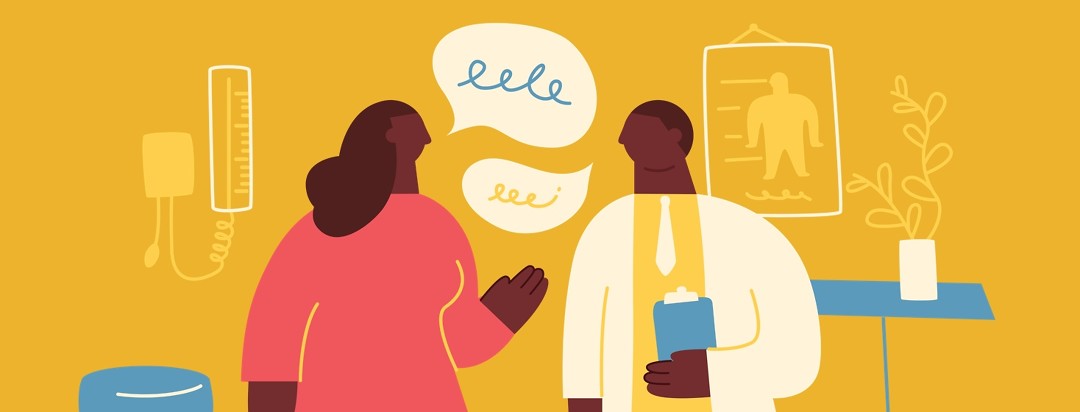What Questions Are Important to Ask Your Doctor?
Going to the doctor is not something most folks look forward too. However, after receiving an HIV diagnosis, going to the doctor becomes a part of our routine to stay healthy. When I started treatment, I was seen by an infectious disease (ID) physician. Now, I see a nurse practitioner. I think this may be true for many care agencies. The providers, whether an ID physician or a nurse practitioner, each specialize in treating people living with HIV.
Starting HIV care and treatment
Ask a trusted friend or family member to attend
Going to care and treatment can really be overwhelming, especially if you are dealing with a new diagnosis. The fear, anxiety, and stress along with the emotions can create so many questions. Going in for your first visit with your doctor takes some planning. If possible, I suggest you go to your first visit with a trusted friend or family member. Having someone with you can provide the support you need for what might be an uncertain experience.
Be proactive and come with questions
Our doctors usually ask questions during an exam. I suggest you take some time to ask the right questions about HIV. Being proactive can make a difference in the way you manage your health with HIV. After I received my diagnosis, I felt a loss of control. It took years before I stopped hesitating and gained a sense of control with regard to my treatment. Your well-being is important to you and your doctor.
Questions to ask at your doctor's appointment
Having open conversations with your doctor will help educate you about the care and treatment process. It will also give your doctor a better sense of who you are and how HIV is affecting your overall health. With an open line of communication, you and your doctor will be able to develop a treatment plan that meets your needs.
Here is a list of some of the questions you might want to ask your doctor at your first appointment:1
Lifestyle
- Are there things I should change about my day-to-day life?
- Can I still work out and be physically active with HIV/AIDS?
- Do I need to change my diet?
- What can I do to prevent the problems caused by HIV and opportunistic infections?
- How can I protect others from getting HIV?
- Are you a sex-positive doctor?
Treatment and side effects
- How much experience do you have in treating people living with HIV/AIDS?
- How can we tell if my immune system is working?
- How do you decide which medications I should be taking?
- Do I have to take medication if I’m feeling okay?
- What can I do to deal with side effects?
- How long do side effects last when I start new treatment?
- What kind of side effects can I expect for medications?
- What signs of trouble should I be watching out for?
Type of practice
- How often do I need to see you?
- Can I speak with you between appointments?
- How often will you order labs?
- Do you provide referrals for things that may need to be screened?
- Will you conduct a physical examination?
- Will you test for drug resistance?
Appointment logistics
- Do you mind if I record our appointments?
- If you are not available and I have an issue, who should I ask to see?
Keep in mind: your first two appointments will probably be longer than your subsequent visits. During your first visit, you have the opportunity to get to know your doctor. This is the perfect time to ask all of your questions.
Community Poll
Have you ever been unhoused or insecurely housed?

Join the conversation